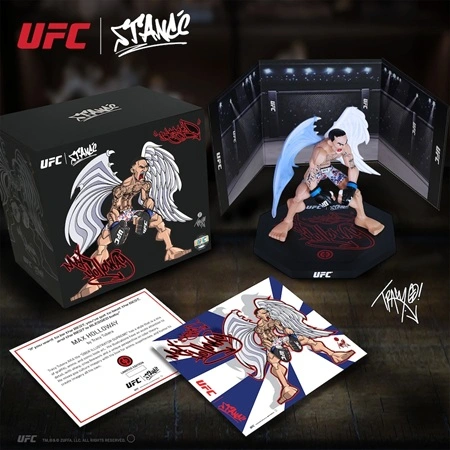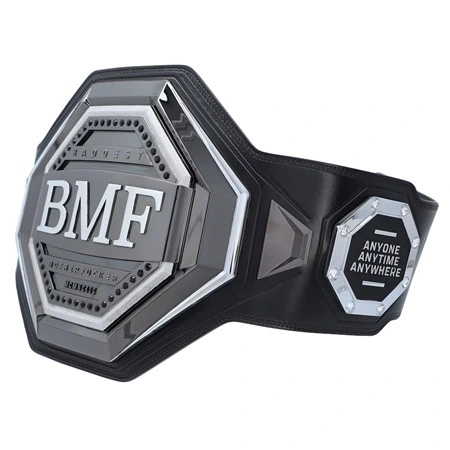The Minds Behind the Revolutionary Idea
In 1993, Art Davie and Rorion Gracie founded the UFC to find out which martial art was really effective. What was originally a concept for a single event became a wildly successful franchise that revealed different fighting techniques within the now-famous Octagon.
The Origins of The Ultimate Fighting Championship
The Ultimate Fighting Championship revolutionized combat sports as of 1993. The UFC combined athletes from many disciplines to compete in genuine, unfettered competition with the aim of finding out which effective martial art would prove to be the best.
This simple yet bold concept quickly became a global phenomenon and laid the foundation for what is now known as mixed martial arts.
But the UFC was not an overnight success. It took visions, risks, and a group of dedicated people.
Meet the Founders - The Five Who Shaped the UFC
Here are the five founders who made the UFC what it is today:
1. Art Davie - The Dreamer
Art Davie is a businessman and entrepreneur. Formerly, he has done work in Southern California ad circles.
In 1993, he organized and promoted the event that aired as the Ultimate Fighting Championship. In 1998, as vice president for K-1 USA, Davie brought the hot K-1 kickboxing brand to Las Vegas and North American pay-per-view television.
Art Davie believed that fighters from different backgrounds must be pitted against each other. This enthusiasm of his motivated them in the initial stages.
2. Rorion Gracie - The Martial Artist

Rorion Gracie is a Gracie Jiu-Jitsu Grand Master born in Brazil, member of the notable Gracie family, and a writer, publisher, producer, lecturer, lawyer as well as co-founder of the Ultimate Fighting Championship.
He was born into a family of Brazilian Jiu-Jitsu legends. In the United States, Rorion introduced BJJ.
He wanted to demonstrate that BJJ is one of the most effective forms of martial arts. Actually, he helped design the no-holds-barred portion.
Gracie's concept had to shape the UFC fighting rules, or lack thereof, that suited it. These became a draw to those seeking authenticity.
3. Campbell McLaren - The Marketing Wizard
Campbell McLaren was born June 18, 1956. Campbell is an American entrepreneur and media executive and one of the developers of the UFC.
Per ESPN, he is "the 10th most influential person in UFC history and his influence on the promotion cannot be overstated," as he was also overseeing the promotion of the original UFC shows. Later on, he took responsibility for the entire operation.
Without Campbell's promotional magic, probably the UFC would not have received the limelight it needed. His strategies defined the UFC brand.
4. Bob Meyrowitz - The TV Executive
Robert "Bob" Meyrowitz is a pivotal figure in mixed martial arts. He is the co-founder of the Ultimate Fighting Championship (UFC).
He created D.I.R. Broadcasting, which saw the radio series known as "King Biscuit Flower Hour." In 2008 he started up, together with his entity, Rope Partners and Live Nation in partnership that was then titled YAMMA Pit Fighting but produced only a solitary event in January, this being done before YAMMA dissolved.
A highly successful producer's work life would eventually result in induction on the June 10 of the Contributor Wing of the UFC Hall of Fame.
5. David Isaacs - The Media Expert
David Isaacs is a media and technology entrepreneur and TV/live event producer best known as a cofounder of the UFC. David Isaacs was a man of the media and television production. He joined hands with Meyrowitz on the TV side. He was the catalyst in getting the UFC onto screens across the country. His focus was on production quality.
David Isaacs helped in making the events look great, thereby developing a format that attracted the attention of the viewers.
Original Concept of The UFC: "War of the Worlds"
It came to mind when Art Davie conceived the idea of the UFC as an eight-man single-elimination tournament where several martial arts styles will compete with each other head to head. Rorion Gracie hailed from the Gracies in Action video series and saw it as a perfect opportunity to showcase his Brazilian jiu-jitsu on a world scale.
- Objective: To pit different forms of martial arts head-to-head against each other.
- Video Series Inspiration: Gracies in Action
- Style Representation for Martial Arts: Disciplines represented were karate, boxing, jiu-jitsu, wrestling, and many more
- Goal by Rorion Gracie: To introduce Brazilian jiu-jitsu as the most practical form of martial art and bring it into a worldwide platform for people to know about the style under the Gracie family
Securing a Broadcast Partner
In 1993, Art Davie and Rorion Gracie were soliciting a broadcast partner to help them launch the concept through their company WOW Promotions. However, HBO and Showtime failed to accept it. Finally, they could catch the attention of Semaphore Entertainment Group (SEG), which was interested in the concept and thus became the pay-per-view partner.
- Initial Rejections: HBO and Showtime rejected the idea.
- New Partner: Semaphore Entertainment Group (SEG) agreed to come on board as a pay-per-view partner.
- Marketing Appeal: The UFC was marketed as a "real-life video game," attracting viewers who were excited to see fighters from different backgrounds, much like characters in popular games of the time.
Designing The Octagon
The company hired an art director named Jason Cusson to create the unique Octagon ring for the UFC. His inspiration for this unique ring was brainstorming sessions with SEG about creating a visually striking ring to separate UFC from other sports.
Cusson designed the ring as an eight-sided cage with chain-link fencing that was both practical and aesthetically pleasing so fighters could not fall out of the ring or lean against the ropes.
- Shape of an Octagon: Chain-link fencing to prevent the fighters from going out of the ring.
- Functionality: Fighters could not hold onto the ropes, so it gave the fight the no-holds-barred effect.
- Visual Appeal: The raw intense look comes from the shape and fencing of UFC which gives it a different outlook.
Present Day Ultimate Fighting Championship
Today, UFC is a billion-dollar industry under TKO Group Holdings with Dana White and CEO Ari Emanuel leading the charge.

The company has spread all over the world with over 400 events so far, streaming services, and many other products, from merchandise to a specific performance institute for fighters.
For training, UFC fighters wear their own approved MMA gear for protection and performance.
Legacy of the Founders
The founders of the UFC answered a simple question: "Which martial art is the best?".
They created a global phenomenon that transformed combat sports by doing so. This bold vision led to the creation of a new sport, and the UFC remains, to this day, the world's premier organization in MMA, featuring fighters and martial arts from all around the world.













